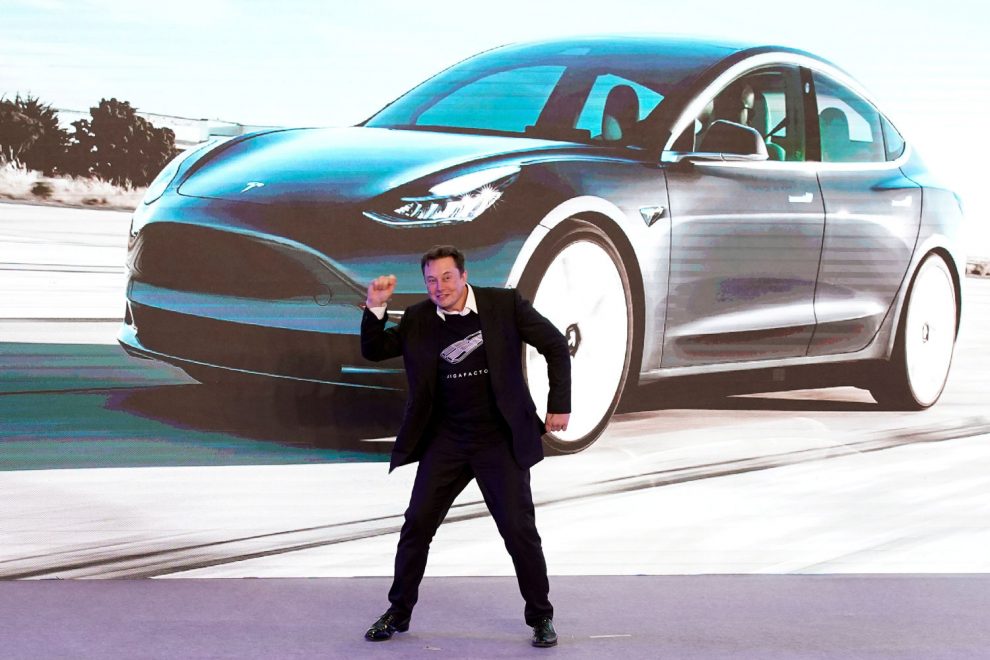Tesla‘s most important products this year and next will not be cars, chief executive Elon Musk said on Wednesday, but software that drives them autonomously and a humanoid robot.
The audacious promises by the best-known billionaire in the electric car industry face major challenges, from technology to regulation. Tesla and other auto technology companies have missed their targets to deploy self-driving cars for years.
“I love the fact that they’re pushing the envelope, but I think they are too aggressive,” Roth Capital Partners analyst Craig Irwin said.
Musk has built a career on defying sceptics with businesses in electric cars and rockets. Some Tesla drivers buy $12,000 self-driving packages in the expectation that full autonomy is around the corner.
“I would be shocked if we do not achieve full self-driving safer than human this year. I would be shocked,” Musk said, predicting full self-driving would become “the most important source of profitability for Tesla”.
“It’s nutty good from a financial standpoint,” he said, noting that robotaxis would boost a vehicle’s utility five times as owners can send their cars out to work when not needed.
‘Robots will be more important’
Musk said human-like robots and self-driving cars are more important than Cybertruck or $25,000 electric cars.
Tesla shares fell 10% to the lowest level in over three months on Thursday after it delayed releasing new vehicles like Cybertruck until next year because of supply chain problems. Musk said Tesla is not currently developing $25,000 electric cars.
Tesla uses cameras and artificial intelligence, avoiding other technologies such as radar and lidar sensors that rivals say are key to achieving full autonomy. That approach has drawn fire.
“You have to be able to not only just see a person, like right in front of you, you have to do so, with 99.99% reliability. Even running over someone once is not an acceptable answer,” Austin Russell, CEO of lidar maker Luminar, said.
Philip Koopman, a Carnegie Mellon University professor working on autonomous vehicle safety, said a big problem is that at scale, unusual cases constantly can crop up.
“Without a human driver to handle safety for novel situations the machine learning hasn’t been taught already, it’s very difficult to ensure safety in a completely automated vehicle,” he said.
Regulatory Hurdles for Robotaxis
Even if the technology works, Tesla would come under more rigorous scrutiny from regulators before deploying fleets of free-roaming robotaxis.
US auto safety regulators opened a safety probe into Tesla’s advanced driver assistant system after crashes involving the vehicles and parked emergency vehicles.
Federal vehicle safety regulators have issued guidelines to states, but not comprehensive standards governing self-driving cars. Some state laws require approval for a fully autonomous vehicle, Koopman said.
Just a year ago, Musk said during an earnings call he was “highly confident the car will be able to drive itself with reliability in excess of human this year.”
‘Doesn’t Match Reality’
Tesla’s autopilot engineer at the time, CJ Moore, last year told the California regulator that Musk’s tweet on self-driving technology “does not match engineering reality.”
Musk also said engineers were working to launch a humanoid robot next year, called Optimus, that could eventually address global labour shortages, and in the short term might be able to carry items around a factory.
“For performing dangerous and repetitive tasks, using a humanoid robot is exactly the wrong approach,” Raj Rajkumar, a professor of electrical and computer engineering at Carnegie Mellon University, said.
Robots may be more important than cars, Musk said. “This, I think, has the potential to be more significant than the vehicle business over time.”
- Reuters with additional editing by Jim Pollard
ALSO READ:
Tesla Forecasts 50% Growth in Vehicle Deliveries in 2022
Moody’s Sees Tesla Staying at EV Leader Spot, Upgrades Rating
China EV Maker Nio’s US Expansion Sets Up Tesla Showdown
























